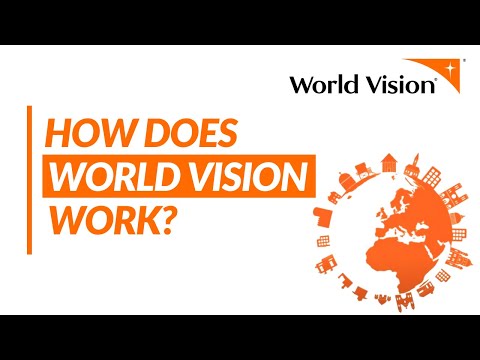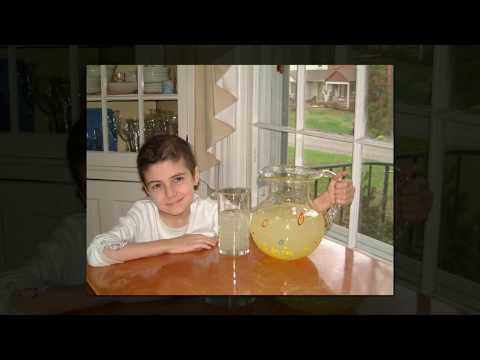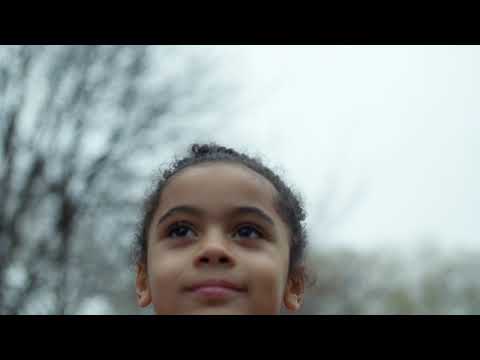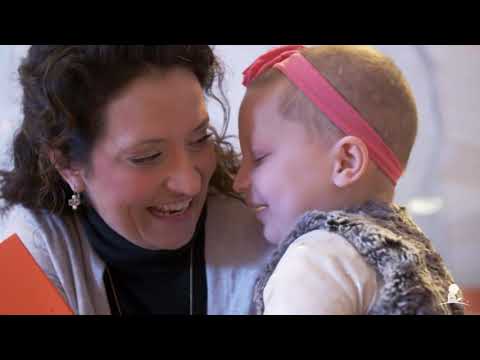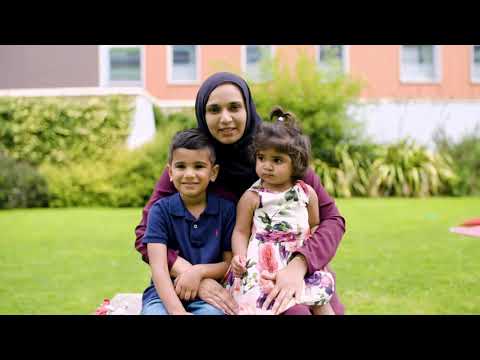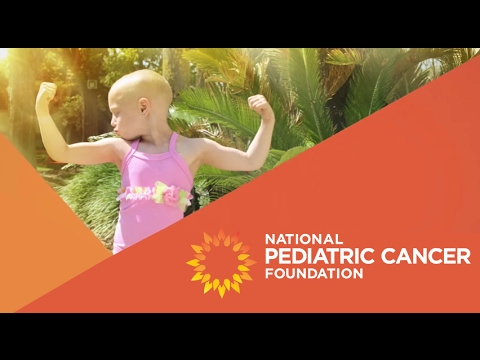9 Best Charities for Children’s Health (Complete 2024 List)
Impactful Ninja is reader-supported. When you buy through links on our site, we may earn an affiliate commission.
Learn more
Learn more
.
Hey fellow impactful ninja ? You may have noticed that Impactful Ninja is all about providing helpful information to make a positive impact on the world and society. And that we love to link back to where we found all the information for each of our posts. Most of these links are informational-based for you to check out their primary sources with one click. But some of these links are so-called "affiliate links" to products that we recommend. First and foremost, because we believe that they add value to you. For example, when we wrote a post about the environmental impact of long showers, we came across an EPA recommendation to use WaterSense showerheads. So we linked to where you can find them. Or, for many of our posts, we also link to our favorite books on that topic so that you can get a much more holistic overview than one single blog post could provide. And when there is an affiliate program for these products, we sign up for it. For example, as Amazon Associates, we earn from qualifying purchases. First, and most importantly, we still only recommend products that we believe add value for you. When you buy something through one of our affiliate links, we may earn a small commission - but at no additional costs to you. And when you buy something through a link that is not an affiliate link, we won’t receive any commission but we’ll still be happy to have helped you. When we find products that we believe add value to you and the seller has an affiliate program, we sign up for it. When you buy something through one of our affiliate links, we may earn a small commission (at no extra costs to you). And at this point in time, all money is reinvested in sharing the most helpful content with you. This includes all operating costs for running this site and the content creation itself. You may have noticed by the way Impactful Ninja is operated that money is not the driving factor behind it. It is a passion project of mine and I love to share helpful information with you to make a positive impact on the world and society. However, it's a project in that I invest a lot of time and also quite some money. Eventually, my dream is to one day turn this passion project into my full-time job and provide even more helpful information. But that's still a long time to go. Stay impactful,Affiliate Disclosure
Why do we add these product links?
What do these affiliate links mean for you?
What do these affiliate links mean for us?
What does this mean for me personally?
![]()
Health in early childhood can have lifelong implications. Children’s healthcare begins before they are born, with maternal health laying the foundation for early development. Yet, many children face barriers to adequate healthcare such as poverty, disease, and improper nutrition. Organizations around the world are working to help children overcome these barriers and access quality healthcare. So, we had to ask: what are the best charities for children’s health?
The best charities for children’s health are World Vision and Alex’s Lemonade Stand Foundation. Charities such as Save the Children and Action for Healthy Kids work to ensure children receive adequate nutrition and tools to sustain lifelong healthy habits.
Whether you want to help impoverished children around the world avoid preventable diseases, fund cutting-edge research to better understand and treat childhood cancer, or fight childhood obesity, there is a charity for you. Keep reading to learn more about what the best charities for children’s health are all about, how they work, and what your best way would be to make a contribution.
Here’s What All the Best Charities for Children’s Health Have in Common
The charities on this list were chosen based on their mission, impact and transparency ratings, and achievements.
The majority operate primarily throughout the US and Canada, but some support children’s health internationally.
Many of these charities help children exclusively. Others also focus on community health, including maternal health, to ensure children have sustainable access to quality healthcare.
Some focus on specific threats to children’s health, such as mental illness or cancer, while others tackle broader barriers like poverty.
Yet, they all share a common goal; to support children’s health.
These Are the 9 Best Charities for Children’s Health in 2024
Below are our favorite charities for children’s health (you can click on their link to directly jump to their section in this article):
Best Charities For Children’s Health
(At the end of this article we’ll also share our six-step approach on how you can select the best charity to support.)
World Vision: Bringing Health to Children Around the World

🔎
Their transparency & ratings:
Charity Navigator gives World Vision a 4-star rating. GuideStar gives the charity a Platinum Seal of Transparency.
“Pulling up the roots of poverty and planting the seeds of change.”
World Vision
⚒️
What they do:
World Vision works with communities, donors, partners, and governments to improve the lives of children living in poverty. They support children’s health by focusing on issues common in underserved communities, such as malnourishment and preventable disease. They also provide goods and services directly. For example, they provide bed nets to protect children from Malaria and train local health workers and families in prevention. In addition, their Healthy Timing and Spacing of Pregnancies initiative educates women and families on the benefits of delaying pregnancy to achieve the healthiest outcomes.
🚀
What they’ve achieved:
Since their founding, World Vision has directly contributed to the improved health of millions of children. In 2021 alone, they reached 33.5 million people with disease prevention training, treatment, and support. In the same year, they provided 163,172 metric tons of food supplies to help nourish children and families, and supported and trained over 184,000 community health workers in 46 countries. Within 10 years, they equipped 28.4 million people with lasting access to clean water.
✨
Ways to contribute:
You can donate to World Vision via their website. You can also support the charity by sponsoring a child.
Alex’s Lemonade Stand Foundation: A Legacy of Hope

🔎
Their transparency & ratings:
Charity Navigator gives Alex’s Lemonade Stand Foundation a 4-star rating. GuideStar gives the charity a Platinum Seal of Transparency.
“Fighting childhood cancer, one cup at a time.”
Alex’s Lemonade Stand Foundation
⚒️
What they do:
Alex’s Lemonade Stand Foundation improves the lives of children with cancer by funding research, raising awareness, and supporting and empowering families. Their ALSF Grant Program funds cutting-edge research into all facets of pediatric cancer, from early diagnosis to treatment. Their Childhood Cancer Data Lab initiative seeks to accelerate cancer research by streamlining access to existing data. The charity also supports families of children with cancer through their Travel for Care program, which offsets the costs of traveling for treatment, and their Super Sibs program, which offers comfort and encouragement to siblings.
🚀
What they’ve achieved:
Since their founding, Alex’s Lemonade Stand Foundation has raised over $250 million to fight childhood cancer. They have funded more than 1,000 projects at 150 institutions across the US and Canada. For example, in 2021, their Travel for Care program helped over 400 families and their Super Sibs program reached more than 1,900 siblings of children with cancer.
✨
Ways to contribute:
You can donate to Alex’s Lemonade Stand Foundation via their website. You can also volunteer locally or participate in an event.
Save the Children: Ensuring a Healthy Start
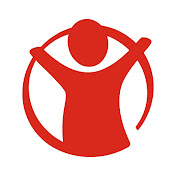
🔎
Their transparency & ratings:
Charity Navigator gives Save the Children a 4-star rating. GuideStar gives the charity a Platinum Seal of Transparency.
“All children deserve a healthy start in life.”
Save the Children
⚒️
What they do:
Save the Children combats malnutrition and disease in children around the world by ensuring mothers, babies, and children have access to health and nutrition services. Their high-impact programs address some of the biggest threats to children’s health. For example, their School Health and Nutrition Program partners with schools to improve health and nutrition, provide access to safe water, and promote lifelong healthy behaviors. They also help vulnerable families and communities increase their resilience during crises and improve long-term food security through their Food Security and Livelihoods Program.
🚀
What they’ve achieved:
Since their founding, Save the Children has changed the lives of over 1 billion children. They have helped cut the number of children dying before age 5 in half since 1990 and helped reduce the number of children with stunted growth due to malnutrition by a third since 2000. For example, in 2021 alone, they helped improve the nutrition of 10.1 million children.
✨
Ways to contribute:
You can donate to Save the Children via their website. You can also participate in a fundraiser, volunteer, or sponsor a child.
Action for Healthy Kids: Fighting Childhood Obesity
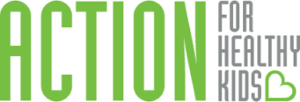
🔎
Their transparency & ratings:
Charity Navigator gives Action for Healthy Kids a 3-star rating. GuideStar gives the charity a Gold of Transparency.
“All kids deserve to be healthy- in body and mind.”
Action for Healthy Kids
⚒️
What they do:
Action for Healthy Kids brings schools and families together and equips them with tools and resources to promote children’s health. Their family-school partnership model identifies the specific needs of the community and barriers to engagement, to develop and implement effective solutions. They focus on three key program areas: food access and nutrition education (NourishED), physical activity and active play (EnergizED), and social-emotional health and risk behavior prevention (ConnectED). They also award grants to schools to help them accomplish student wellness goals.
🚀
What they’ve achieved:
Since their founding, the Action for Healthy Kids Network has positively impacted 20 million children across more than 55,000 schools, with the help of their 140,000 volunteers. Since 2009, they have awarded $9.3 million in grants to schools and districts across the US. In response to the COVID-19 pandemic, they awarded additional grants to fund emergency meal equipment and more effective meal distribution to 44 school districts. As a result, they served more than 20 million meals to children during the 2020-2021 school year.
✨
Ways to contribute:
You can donate to Action for Healthy Kids via their website. You can also get involved by participating in a learning event or fundraising.
Child Mind Institute: Mental Health in the Developing Brain

🔎
Their transparency & ratings:
Charity Navigator gives the Child Mind Institute a 3-star rating. GuideStar gives the charity a Platinum Seal of Transparency.
“Reaching struggling kids wherever they are.”
Child Mind Institute
⚒️
What they do:
The Child Mind Institute helps children with mental health and learning challenges through three initiative areas: care, education, and science. Their care initiative offers evaluation and treatment for a wide variety of mental health and learning concerns. Their education initiative includes the Family Resource Center and School and Community Programs, which provide families and communities with resources to promote children’s mental health. In addition, their science initiative drives research into causes of mental health and learning challenges in developing brains and adapts treatments accordingly.
🚀
What they’ve achieved:
Since their founding, the Child Mind Institute has treated more than 13,110 patients, over 75% of whom received services for free or at a reduced cost. Their Healthy Brain Network has included more than 5,510 participants and the data has been cited in more than 1,289 research articles. And, for example, in 2021 alone, more than 17 million people visited the organization’s website for free, evidence-based resources on children’s mental health.
✨
Ways to contribute:
You can donate to the Child Mind Institute via their website. You can also register to participate in an event by attending or becoming a sponsor.
St. Jude Children’s Research Hospital: Advancing Research to Advance Cures

🔎
Their transparency & ratings:
Charity Navigator gives St. Jude Children’s Research Hospital a 4-star rating. GuideStar gives the charity a Silver Seal of Transparency.
“No child should die in the dawn of life.”
St. Jude Children’s Research Hospital
⚒️
What they do:
St. Jude’s Children’s Hospital advances cures and prevention for pediatric diseases through research and treatment. They provide direct treatment to children with life-threatening diseases, including experimental or specialized treatment for children who have not responded to standard care. They also provide resources to families at all stages of treatment, and all services are rendered free of charge. In addition, they fund research to understand diseases and develop breakthrough cures and treatments, and offer training to future clinicians and biomedical researchers.
🚀
What they’ve achieved:
Since their founding, St. Jude’s Children’s Research Hospital has helped to push the overall survival rate for childhood cancer from 20% to over 80%. In 1996, St. Jude doctor Peter Doherty was awarded the Nobel Prize for Physiology and Medicine for his research on viral infections and organ transplants. Since then, the charity’s international initiative, St. Jude Global Alliance has grown to 127 institutions in 57 countries.
✨
Ways to contribute:
You can donate to St. Jude Children’s Research Hospital via their website. You can also participate in a fundraiser or volunteer at a chapter in your community.
March of Dimes: Healthy Mothers, Healthy Babies

🔎
Their transparency & ratings:
Charity Navigator gives the March of Dimes a 2-star rating due to the amount of money they spend on their programs. GuideStar gives the charity a Platinum Seal of Transparency.
“Fighting for the health of all moms and babies.”
March of Dimes
⚒️
What they do:
March of Dimes promotes the health of mothers and babies through research, education, and advocacy. The March of Dimes Prematurity Campaign aims to reduce premature births by funding research, educating women about risk reduction, and advocating for expanded healthcare coverage. In addition, their NICU Family Support Program educates NICU staff and provides evidence-based programs and resources to families of premature babies. They also promote health equity by advocating for policies that increase access to quality care for underserved communities.
🚀
What they’ve achieved:
Since their founding, March of Dimes has played a significant role in shaping national and state policies that impact the health of women, children, and infants in the US. For example, in 2021, they supported the American Rescue Plan Act, which extends postpartum Medicaid coverage for up to 12 months. They have also funded vital medical breakthroughs, including the polio vaccine and the first bone marrow transplant to correct a congenital disability. Their largest fundraiser, March for Babies, has generated over $1.8 billion to support their mission since 1970.
✨
Ways to contribute:
You can donate to March of Dimes via their website. You can also volunteer locally or create your own fundraiser.
Ronald McDonald House Charities: Caring for Sick Children and their Families
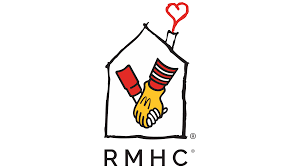
🔎
Their transparency & ratings:
Charity Navigator gives Ronald McDonald House Charities a 4-star rating. They are also an accredited charity with the Better Business Bureau’s Wise Giving Alliance.
“We believe that when families are together, they cope better.”
Ronald McDonald House Charities
⚒️
What they do:
Ronald McDonald House Charities enable, support, and facilitate family-centered care for children. They operate through three core programs: Ronald McDonald House programs provide families with room and board near their hospitalized child without incurring the cost of hotels and food. Their Ronald McDonald Family Room programs offer comfortable hospitality rooms inside hospitals, and their Ronald McDonald Care Mobile programs bring medical and dental care to children in underserved communities.
🚀
What they’ve achieved:
Since their founding, Ronald McDonald House Charities has supported millions of children and families across 62 countries through 685 core programs. In 2021 alone, they provided over 1.8 million overnight stays, saving families more than $504 million in lodging costs. At least one core program operates at 90% of all children’s hospitals worldwide.
✨
Ways to contribute:
You can donate to Ronald McDonald House Charities via their website. You can also host a fundraiser or volunteer at a chapter in your community.
National Pediatric Cancer Foundation: Collaboration for a Cure
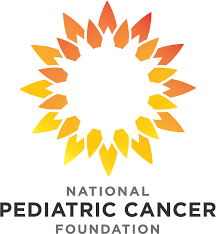
🔎
Their transparency & ratings:
Charity Navigator gives the National Pediatric Cancer Foundation a 4-star rating. GuideStar gives the charity a Platinum Seal of Transparency.
“Rise up for a faster cure.”
National Pediatric Cancer Foundation
⚒️
What they do:
The National Pediatric Cancer Foundation funds research and clinical trials to improve existing cancer treatments and find better ones. In 2005, they launched The Sunshine Project, an innovative collaborative effort to bring together scientists and researchers from different fields to streamline the research process. Their Sunshine Lab tests new compounds and combinations of drugs to help children who have not experienced positive results with existing treatments.
🚀
What they’ve achieved:
Since its founding, the National Pediatric Cancer institute has dedicated over $33 million to cancer research. The Sunshine Project has grown to include over 150 top scientists and researchers at over 30 pediatric cancer institutes in the US.
✨
Ways to contribute:
You can donate to the National Pediatric Cancer Foundation via their website. You can also support the charity by volunteering locally, participating in an event, or fundraising.
How Can You Select the Best Charities to Support?
The charities on the list are, we deem, the best charities for children’s health. However, you may have a particular charity you want to support. Let’s look at what you can do to ensure your contribution has the most significant impact.
- Check out the charity website. Charities that are worthy of your donations are transparent in their mission and their figures. Familiarise yourself with their history, mission, and values. Their website usually is the best place to start.
- Identify the charity’s mission. Without a goal, the charity is likely to fail. If the charity’s mission isn’t clear, it’s probably worth looking for a charity that does have a clear mission.
- Check if the charity has measurable goals. An effective charity has clear goals. You want to know your donation will help the charity reach its goals. But if it doesn’t have targets, it’s likely to fail or squander your gift. The charity should be able to account for its spending and supply evidence of the work they do.
- Assess the successes or goals the charity has achieved. You wouldn’t invest in a business if it kept missing its targets. In the same way, charities are like this too. If no one is assessing a charity’s progress in reaching its targets, the chances are they’re not making a substantial positive change.
- Check the charity’s financials and stats. Trustworthy organizations will publish financial statements and reports each year. Some might be exempt from having to do so, but they should be able to provide them to public members who are interested in donating.
- Locate sources who work with or benefit from the charity. Word of mouth and first-hand experience of a charity’s work lets you know the charity’s quality. If you’re able to do so, check out the charity for yourself or speak to someone familiar with it. This way, your donation will go to the right place.
How Can You Best Support These Charities?
After you’ve made your decision, it’s time for you to decide on how you’d like to help the charities you’ve chosen. Check how you can help – each charity runs specific programs that have unique aims. Find out what the aim of such programs is and whether they are right for you.
Here are a few ways you can help your chosen charity:
- Donate money. You can find donation pages on the website of most charities. Your donation can be a one-time payment, or you can set it to be deducted regularly at different intervals. You can mostly pay via credit card, but some charities also take PayPal or Bitcoin payments.
- Buy their official merchandise. The charities can also raise money by selling merchandise. So, you can support them by buying the mugs, shirts, caps, pens, pencils, and any other such items they may be selling. Ideally, you should buy as much as you can to share and spread the word about the charity’s activities.
- Engage in volunteer work. As you’ve seen from our descriptions above, some charities engage in a lot of local and grassroots programs. You can help by taking on and organizing the program in your local area.
- Help their fundraising efforts. You can spread the word about the charity in your workplace, school, church, etc., and hold creative fundraising drives on social media or offline within your small circles.
- Share their stories. Most charities have compelling stories that you can share with your audience to attract more people to the cause.
Final Thoughts
Now it is up to you to select the charity that resonates most with you. And whichever charity you end up choosing and contributing to, we are sure that they will immensely appreciate your support. Hopefully, the information within this article has made this selection process a bit easier for you to support charities dedicated to children’s health – based on the causes that matter most to you.
Stay impactful,

PS: Finally, I want to leave you with a thought-provoking TED talk from Dan Pallotta, a leading philanthropic activist and fundraiser, about what is wrong with the way we think about charities – and what we can do about it:
Sources
- Harvard: Health of Developing Children
- World Vision: Home
- World Vision: Our History
- Forbes: World Vision
- Charity Navigator: World Vision
- GuideStar: World Vision
- World Vision: Nutrition
- World Vision: HIV and Infectious Diseases
- World Vision: Maternal and Newborn Health
- World Vision: Financial Accountability
- World Vision: Donate
- World Vision: Sponsor a Child
- Alex’s Lemonade Stand Foundation: Our Mission and History
- Charity Navigator: Alex’s Lemonade Stand Foundation
- GuideStar: Alex’s Lemonade Stand Foundation
- Alex’s Lemonade Stand Foundation: Where the Money Goes
- Alex’s Lemonade Stand Foundation: Childhood Cancer Data Lab
- Alex’s Lemonade Stand Foundation: Travel for Care
- Alex’s Lemonade Stand Foundation: Super Sibs
- Alex’s Lemonade Stand Foundation: 2021 Annual Report
- Alex’s Lemonade Stand Foundation: Contribute
- Alex’s Lemonade Stand Foundation: Volunteer
- Alex’s Lemonade Stand Foundation: Get Involved
- Save the Children: About Us
- Charity Navigator: Save the Children
- GuideStar: Save the Children
- Save the Children: School Health and Nutrition
- Save the Children: Hunger and Livelihoods
- Save the Children: Health
- Save the Children: 2021 Annual Report
- Save the Children:: Donate
- Save the Children:: Fundraise
- Save the Children: Volunteer
- Action for Healthy Kids: Home
- Action for Healthy Kids: Who We Are
- Action for Healthy Kids: What We Do
- Charity Navigator: Action for Healthy Kids
- GuideStar: Action for Healthy Kids
- Action for Healthy Kids: NourishED
- Action for Healthy Kids: EnergizED
- Action for Healthy Kids: ConnectED
- Action for Healthy Kids: Grants and Support
- Action for Healthy Kids: At a Glance
- Action for Healthy Kids: School Grant Program Report
- Action for Healthy Kids: Donate
- Action for Healthy Kids: Events
- Action for Healthy Kids: Fundraise
- The Child Mind Institute: About Us
- Charity Navigator: Child Mind Institute
- GuideStar: Child Mind Institute
- The Child Mind Institute: Care
- The Child Mind Institute: Education
- The Child Mind Institute: Resources
- The Child Mind Institute: School and Community
- The Child Mind Institute: The Center for the Developing Brain
- The Child Mind Institute: Healthy Brain Network
- The Child Mind Institute: Autism Center
- The Child Mind Institute: Our Impact
- The Child Mind Institute: 2021 Annual Report
- The Child Mind Institute: Donate
- The Child Mind Institute: Sponsorship
- St. Jude Children’s Research Hospital: History
- Charity Navigator: St. Jude Children’s Research Hospital
- GuideStar: St. Jude Children’s Research Hospital
- St. Jude Children’s Research Hospital: Treatment
- St. Jude Children’s Research Hospital: Patient Resources
- St. Jude Children’s Research Hospital: Research
- St. Jude Children’s Research Hospital: Education Training
- St. Jude Children’s Research Hospital: Operating Model
- St. Jude Children’s Research Hospital: Media Tools and Facts
- St. Jude Children’s Research Hospital: Global
- St. Jude Children’s Research Hospital: Donate
- St. Jude Children’s Research Hospital: Get Involved
- St. Jude Children’s Research Hospital: Volunteer
- March of Dimes: Home
- March of Dimes: History
- Charity Navigator: March of Dimes
- GuideStar: March of Dimes
- March of Dimes: Prematurity Campaign
- March of Dimes: NICU
- March of Dimes: 2020 Impact Report
- March of Dimes: March for Babies
- March of Dimes: Accomplishments
- March of Dimes: Advocacy Achievements
- March of Dimes: Donate
- March of Dimes: Fundraise
- March of Dimes: Volunteer
- Ronald McDonald House Charities: Home
- Charity Navigator: Ronald McDonald House Charities
- BBB Wise Giving Alliance: Ronald McDonald House Charities
- Ronald McDonald House Charities: House Programs
- Ronald McDonald House Charities: Family Rooms
- Ronald McDonald House Charities: Care Mobile
- Ronald McDonald House Charities: Our Impact
- Ronald McDonald House Charities: 2021 Annual Report
- Ronald McDonald House Charities: Donate
- Ronald McDonald House Charities: Fundraise
- Ronald McDonald House Charities: Volunteer
- National Pediatric Cancer Foundation: History
- Charity Navigator: National Pediatric Cancer Foundation
- GuideStar: National Pediatric Cancer Foundation
- National Pediatric Cancer Foundation: Research
- National Pediatric Cancer Foundation: 2021 Annual Report
- National Pediatric Cancer Foundation: Volunteer
- National Pediatric Cancer Foundation: Events
- National Pediatric Cancer Foundation: Fundraise
